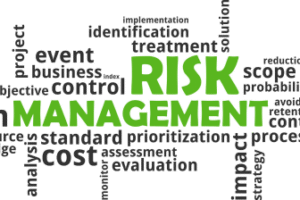
Can a BCom Graduate Study a Master’s in Cyber Security?
Can a BCom Graduate Study a Master’s in Cyber Security?
In today’s digital world, cyber security is one of the most sought-after career paths. With businesses, governments, and organisations increasingly dependent on technology, the demand for masters of cyber security has skyrocketed. Many students from non-technical backgrounds wonder if they can pursue advanced courses in this domain. A common question is: Can a BCom graduate study a masters in cyber security?
The good news is – yes, a BCom graduate can pursue a master in cyber security, provided they meet certain criteria and are willing to build foundational knowledge in technology-related subjects. This article explains how commerce graduates can enter the cyber security field, what options are available, and how GRMI’s Post Graduate Diploma in Technology Risk Management (PGDTRM) provides a great opportunity for such aspirants.
Why Cyber Security is an Attractive Career Option
Cyber security protects digital assets from malicious threats and cyberattacks. It plays a critical role in securing sensitive data, financial transactions, and intellectual property. Cyber threats continue to grow with technologies such as cloud computing, IoT, artificial intelligence, and remote work environments.
Key reasons how a career in cyber security can be a promising career:
Eligibility
Most universities and institutions allow graduates from various fields to apply for cyber security certifications. BCom graduates, especially with a basic understanding of computers and the internet, are welcome. Some institutions may require:
- A minimum academic score or percentage in the graduate degree
- Work experience or internships in related sectors
- Foundational knowledge of technology, networking, or databases
Even if technical experience is limited, several programs provide bridging courses to help students get up to speed.
Challenges and How to Overcome Them
Limited Technical Knowledge
BCom graduates may not be familiar with programming languages or networking protocols. This gap can be addressed by:
- Attending foundation or bridge courses before enrolling
- Participating in workshops or online tutorials
- Gaining certifications in basic cyber security concepts
Building Analytical Thinking
Cyber security requires logical reasoning, problem-solving, and risk assessment – skills where commerce students excel due to finance and business management training.
Learning Legal and Compliance Frameworks
BCom graduates often understand accounting standards, taxation, and business laws, making it easier to grasp frameworks like GDPR, HIPAA, and cyber security compliance.
Programs Designed for Commerce Graduates
Many cyber security course now accommodate students from non-technical backgrounds. These include:
- Master’s in Cyber Security: A comprehensive course covering threat analysis, encryption, network security, digital forensics, and compliance
- PG Diploma Programs: Shorter, focused programs that integrate technology risk management with governance and operational controls
- Certificate Courses: Entry-level certifications that build familiarity with tools and protocols used in cyber security
GRMI’s Post Graduate Diploma in Technology Risk Management (PGDTRM)
For BCom graduates who want expertise in technology risk management and cyber security, Global Risk Management Institute (GRMI) offers an excellent option – the PGDTRM.
Why PGDTRM is Ideal for Commerce Graduates
- Interdisciplinary Curriculum: Covers cyber security governance, operations, compliance, and technology-specific risks, connecting finance, audits, and business continuity with security challenges.
- No Prior Technical Degree Required: Welcomes graduates from diverse backgrounds, including commerce, with 0–4 years work experience.
- Collaborative Learning: GRMI partners with NU University, a UGC-recognised institution, to combine academic excellence with practical training.
- Industry-Relevant Skills: Prepares students for sectors like banking, insurance, consulting, and IT services.
- No Entrance Exam Requirement: PGDTRM does not require competitive exams, making it accessible for commerce graduates.
- Networking Opportunities: Access to industry experts, professionals, and peers enhances employability.
Career Opportunities After PGDTRM
Graduates can pursue roles such as:
- Technology Risk Analyst
- Cyber Security Compliance Officer
- Information Security Consultant
- Governance and Risk Specialist
- Internal Audit Analyst
- Digital Forensics Associate
With increasing reliance on secure systems, organisations actively seek professionals who can balance risk, governance, and compliance – areas where commerce graduates trained in technology risk excel.
Conclusion
Cyber security is no longer reserved for tech experts alone. With the right training, commerce graduates can enter rewarding careers in technology risk management and cyber security. Programs like GRMI’s PGDTRM provide a structured, accessible pathway to achieve this.
FAQ's
Q1: Is it possible for a BCom graduate who has no technical background to pursue a career in cyber security?
Ans: Yes, Numerous programs provide introductory classes that start from scratch while developing technical abilities.
Q2: Are graduates in computer science or engineering the only ones who can work in cyber security?
Ans: No, Graduates in commerce can excel in a variety of skills needed for cyber security, including risk analysis, compliance, & governance.
Q3: What is the GRMI PGDTRM program and may BCom graduates enrol in it?
Ans: Graduates from a variety of fields, including commerce, can apply for this postgraduate diploma in technology risk management.
Q4: Does the PGDTRM program need me to pass an entrance exam?
Ans: No, Competitive entrance tests are not necessary for admission to GRMI.
Q5: After completing the PGDTRM program, what employment options are available?
Ans: Graduates can work in a variety of businesses as compliance officers, governance specialists, security consultants, or risk analysts.
You may also like

Best Short Term Courses in IT for Freshers

What is the Best Course in Risk Management in India?


